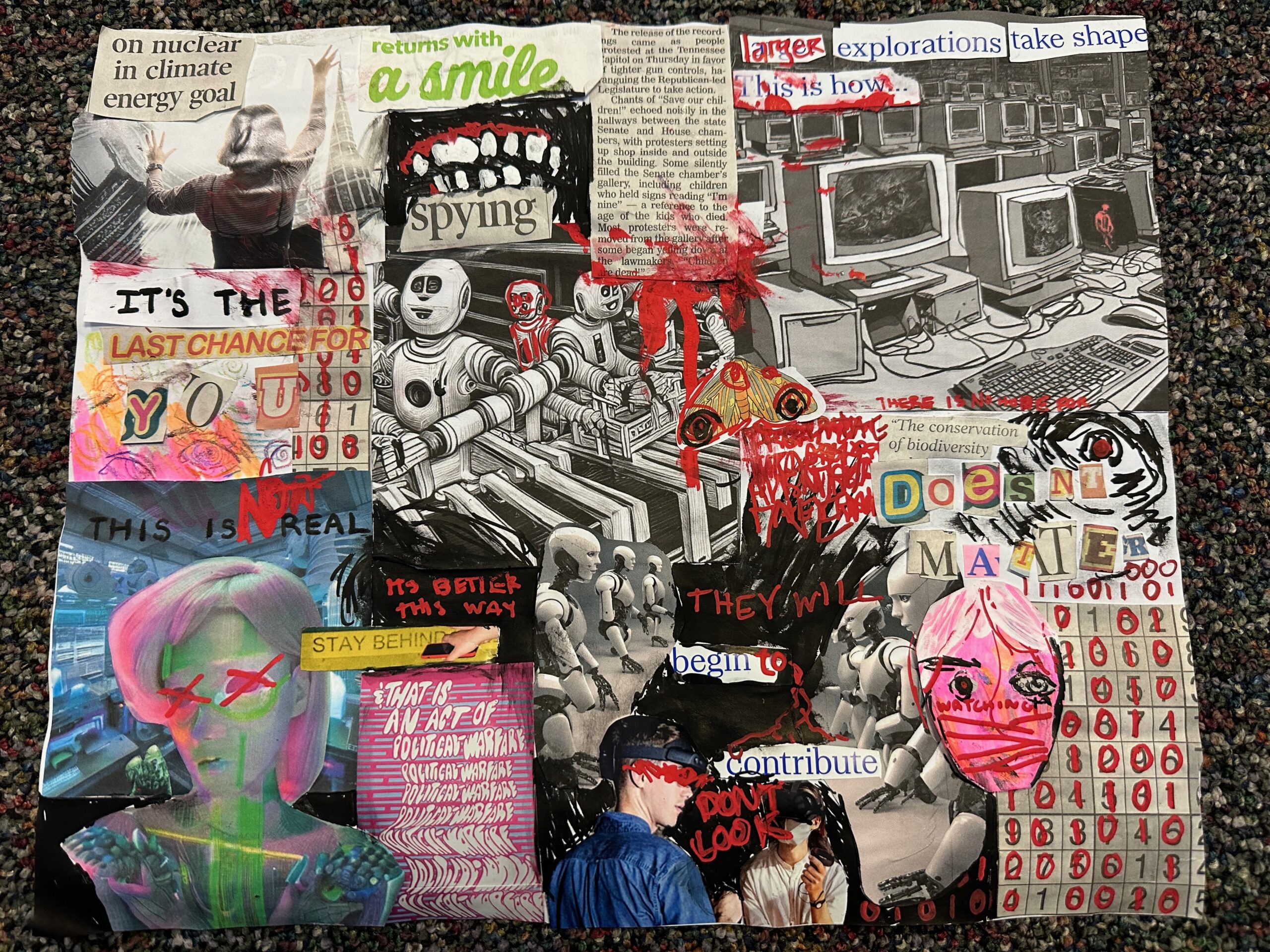Students Reflect on a Semester of Deeper Learning
January 18, 2024

“We do not learn from experience… we learn from reflecting on experience,” ~ John Dewey
It’s January, and although teachers and students alike are eagerly anticipating the change of the semester and all it promises (new classes, new classmates, clean slates), Final Exam and Projects week is an exciting time of reflection and deeper learning for students that’s worth pausing for a moment and…well, reflecting on it.
Deeper learning is both personally and cognitively engaging, and requires reflection on the part of the learner. Junior Justin Robinson designed his own Challenge Course to learn more about hunting and trapping fur bearing animals in our local ecosystem under the tutelage of an expert trapper. He explained that his course helped him gain a deeper understanding of what trapping was, and led him to set goals and reflect on those goals.
Sarah Hancock’s been experimenting with Dartmouth’s Writing Workshops, whose strategies include using a “Common Reader” method, asking for student responses before offering your own, and starting with what’s good about the paper. Sarah asked her Creative Writing class to reflect on their learning this semester, especially about the peer learning process. She asked, “What did you learn from the peer review process either as an author or reviewer? What changed in your story from the last time we read it?”
Abby MacGregor asked her Science Fiction students to demonstrate in original artwork, “What will future works of science fiction look like?” Deeper learning requires the ability to transfer knowledge to solve novel problems, and these students reflected on what they had learned about how sci-fi is often a critique of our current culture and anxieties, and they created art that reflected their new understandings.
In Kate Owen’s Digital Literacy class, middle school students pitched their ideas for apps that solved a problem in the Mock Congressional App Challenge. Ideas included an app that would help match reputable service dog trainers with people in need of service dogs, a childcare finder, mental health support for teens in crisis, an app that helps deliver food to those that need it, and an app that uses AI to help identify trustworthy information. Students explained how each app would work, including the inputs, storage, processing and outputs for their app.
Students in Gary Engler’s advanced biology class participated in a simulated U.N. Climate Symposium. This exercise had students role-playing representatives of countries, regions, and interest groups; reviewing background materials before testing various scenarios using the En-Roads Climate Simulator developed by MIT. Students presented their initial positions and then rotated through a very animated series of small group negotiations/presentations, before presenting their final proposals to mitigate climate change.
Now as we turn our attention to the new semester, students will once again be immersed in new content and problems, and their teachers are carefully planning with the end in mind. And come June, we look forward to pausing – once again – to reflect with pride on what our students have learned.


